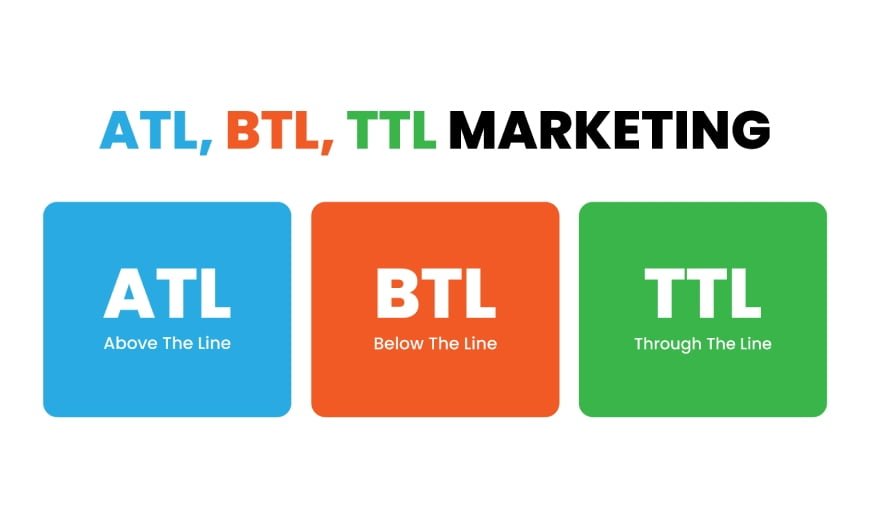
What Are the Most Effective Digital Marketing Strategies?
Table of Contents
A Digital Marketing Strategy functions as a navigational guide to enhance your online visibility across diverse channels. It requires a deep comprehension of your target audience, a thorough analysis of your strengths and weaknesses, and vigilant monitoring of your competitors.
It’s important to note that a strategy differs from tactics, which are the specific actions you take to put your strategy into practice.
4 Tips to Nail Your Digital Strategy:
1. Get to Know Your Customer:
Any digital marketing strategy needs a clear understanding of who your customers are, why they buy your product, and where they prefer to make purchases. Use data and demographics to create a detailed profile of your audience. Some steps to follow:
- Identify channels that match your key demographics.
- Speak the language your customers understand.
- Grasp their pain points and tap into their emotions.
- Create buyer personas for customized content and predict buying patterns.
- Be culturally aware and explore partnerships, like teaming up with influencers.
- Focus on action-oriented experiences and results rather than just the product.
- Use automation tools for effective segmentation and targeting.
2. Conduct a Thorough Audit & Assessment:
To build an effective strategy, you need to know what digital marketing channels and assets you currently have. Conduct a comprehensive audit of all your channels and content, including owned, paid, and earned media. Create a spreadsheet to map each element to your organizational goals, helping you understand what’s driving revenue and what needs improvement.
3. Keep Your Eye on the End Result:
In the midst of focusing on product features and numbers, don’t lose sight of the actual need your product fulfills. Understand your customers’ pain points to comprehend how people use your product or service. Highlight post-purchase moments to remind customers why they needed your offering in the first place.
4. Review and Refine:
When crafting your strategy, include key performance indicators (KPIs) aligned with your crucial business goals. Establish a plan to monitor these metrics, ensuring you:
- Ignore vanity metrics; focus on numbers crucial for long-term success.
- Use flexible KPIs for measuring success.
- Set up regular intervals for analyzing, understanding, measuring, and reporting.
- Know how to isolate critical metrics if something seems off.
5. Effective Digital Marketing Strategies
The digital marketing strategies you choose should align with your business needs and goals, whether it’s generating leads or building brand awareness. Always ensure your chosen strategies reflect your brand and message. Let’s explore a few proven strategies to boost your online visibility and generate leads.
What are the Most Effective Digital Marketing Strategies?
Your choice of digital marketing strategies should align with the specific needs and objectives of your business, whether it’s aimed at increasing leads or establishing brand awareness.
1) Search Engine Optimization (SEO)
SEO is the process of optimizing your online content to rank higher in search engine results pages for specific keywords. This is done by optimizing your website content with targeted keywords, creating backlinks or link building, and improving the overall user experience of your website. By implementing SEO strategies, companies can attract more organic traffic and, ultimately, increase revenue.
2) Social Media Marketing (SMM)
Social media marketing is a strategy that aims to promote your brand, engage with your audience, and build your online presence through various social media platforms. As social media platforms such as Facebook, Instagram, and Twitter are some of the most popular and frequently used online spaces, creating a solid social media marketing strategy can be very effective in cultivating brand awareness and loyalty.
3) Email Marketing
Email marketing involves sending relevant and personalized emails to subscribers in an attempt to promote or market your products or services. The primary goal of email marketing is to build a relationship with your subscribers, encourage loyalty, and drive conversions. With features like automation and segmented mailing lists, email marketing can be a powerful tool for businesses.
4) Video Marketing
It’s no secret that videos are powerful in conveying information and messages. Video marketing is a digital marketing strategy that involves creating engaging and informative videos that promote your brand, products, or services. The videos can be shared across various platforms and help increase brand awareness and build trust with your audience.
5) Content Marketing
Content marketing is a strategy that focuses on creating and distributing valuable and relevant content to attract and retain a specific target audience. Through content marketing, companies can build brand awareness, establish authority in their industry, and drive conversions. Content can include blog articles, infographics, podcasts, and videos, among others.
Conclusion:
To thrive in today’s fiercely competitive digital landscape, businesses must adopt proven digital marketing strategies that ensure reliable outcomes. In this blog post, we delved into key strategies, including SEO, social media marketing, email marketing, video marketing, and content marketing. These approaches are tailored to accomplish diverse marketing goals and contribute to the revenue growth of your business. By employing a thoughtful blend of these strategies, you can forge a robust digital marketing plan perfectly suited to the unique needs and preferences of your audience. Stay sedulous in implementing these strategies to make your mark in the digital realm truly.
 +91 98792 74063
+91 98792 74063












